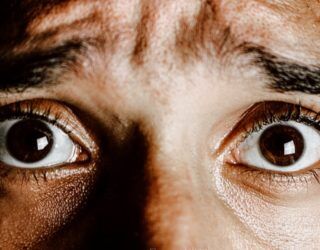It is rather common for a person with a substance abuse history to develop one or more psychiatric conditions, including panic disorder. Experts call this occurrence comorbidity, dual-diagnosis or co-occurring conditions to describe patients who experience a mental illness and substance use disorder sequentially or even simultaneously.
Panic Disorder


Panic Disorder and Substance Abuse
Get Help for Panic Disorder & a Related Addiction Problem
The problem with co-occurring conditions is that their symptoms tend to overlap over time. That can make it difficult for the medical team to differentiate between the disorders and provide patients with the right treatment. The challenge becomes even more demanding as psychological disorders and substance abuse problems must be addressed at the same time. If one treats the addiction without considering the mental illness, then all efforts might just be in vain.
Panic disorders and addiction are some of the most prevalent psychiatric problems in the United States, with 28.8% of the population experiencing anxiety issues, and 14.6% going through some form of substance abuse.
What Is a Panic Disorder?
Panic Disorder is an anxiety disorder that provokes sudden episodes of irrational fear. These events are quite frequent and can appear even without a stressing factor or evident cause.
Individuals with panic disorder face recurrent sudden and overwhelming anxiety that can cause palpitations, rapid heartbeat, sweating, shaking, shortness of breath, and choking. Some people even report feeling like they’ve experienced a heart attack.
Other symptoms include:
How Does a Co-Occurring Drug Addiction Set in?
People experiencing panic disorders can start using drugs or consuming high amounts of alcohol as a means to calm down and avoid having future episodes. Repeated substance abuse can ultimately lead to addiction, which can make a person’s condition worsen, considering that some studies have shown that alcohol and drugs can trigger panic attacks.
According to a study published in Behaviour Research Therapy, alcoholism is present in 10 to 40% of individuals with panic disorders, while 10-20% of those experiencing anxiety episodes also struggle with substance abuse. In most cases, people experience the panic attack episodes before developing a substance abuse disorder, meaning that patients usually start consuming drugs or alcohol to self-medicate.
What Are the Dangers of Drug Abuse?
Drug abuse can potentially lead to addiction as the body slowly begins to form a physical need for the substance and its effects. Regular use of the drug changes a body’s natural chemistry, making it crave the external stimuli that provide a calming effect. As soon as the body notices that the substance is missing, withdrawal symptoms kick in, making the recovery process difficult and strenuous.
Moreover, through abuse, patients can also develop an emotional and mental attachment to the drug. In other words, even though the body itself does not show signs that it needs the substance, the mind will.
Other effects of drug abuse include:
- Altering the brain’s chemical balance;
- Memory lapses;
- Depression;
- Loss of appetite;
- Isolation;
- Withdrawal;
- Overdose and death;
How Are Co-Occurring Issues Like These Treated?
When dealing with a co-occurring condition, patients must receive comprehensive treatment that targets both conditions. There are several options for treating panic disorders with co-occurring addiction.
Medication
Patients receive medication that can help them handle their drug abuse treatment and manage panic attacks. However, treatment solely based on medication cannot help a patient overcome their co-occurring conditions entirely.
Behavioral Therapy
Behavioral therapy is the preferred method of treatment by most professionals as it can offer patients, holistic medical care. The doctors go beyond just treating the dependency. They also focus on determining the roots of the disorders and teaching patients how to handle their condition.
There are several methods of behavioral therapy:
- Counseling, individual or group therapy;
- Meditation;
- Outdoor and physical activities;
- Sports;
- Artistic activities;
The purpose of these tactics is not only to get patients to open up about their condition but also to help them acquire additional skills that can allow them to focus on recovery and handle cravings.
A professional in co-occurring conditions will establish the recovery plan based on the unique needs and medical history of the patient. That’s the best way to ensure they receive the best care.
If you’re battling a co-occurring condition, then try to seek professional help as soon as possible. The longer you wait, the harder it can be to get better.
Get Help You Deserve for Substance Abuse and Panic Disorder
Windward Way undeniably strives to shape its program to provide effective care for men and women who need help for substance abuse. Because of this commitment to offering the best available addiction treatment program for men and women, we also deliver quality service to clients suffering from dual diagnoses such as Panic Disorder. Windward Way’s clinical partnerships will be able to create an addiction treatment for patients with panic disorder.
Do you experience symptoms of sudden dread, trembling, or the inability to breathe? It is possible that you may have Panic Disorder alongside your dependence on alcohol or addictive drugs. Windward Way offers options to cater to your needs. In addition, our treatment modalities we use in our program for recovery can assist in your process to reclaim your life. We can help build an individualized plan to help you address both issues. We want to help. Call us at, (855) 491-7694.
A New Life at Windward Way
The question whether Panic Disorder causes addictive behaviors is still up in the air. However, one undeniable point is that many people struggling with both addiction and also this condition may often self-medicate to alleviate their symptoms. As an addiction treatment provider for patients (diagnosed or otherwise) with Panic Disorder, Windward Way has just the drug and alcohol rehab treatment plans you need to help you with your issues. Find out now how we can offer you the new life you’ve always been looking for: (855) 491-7694.





